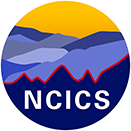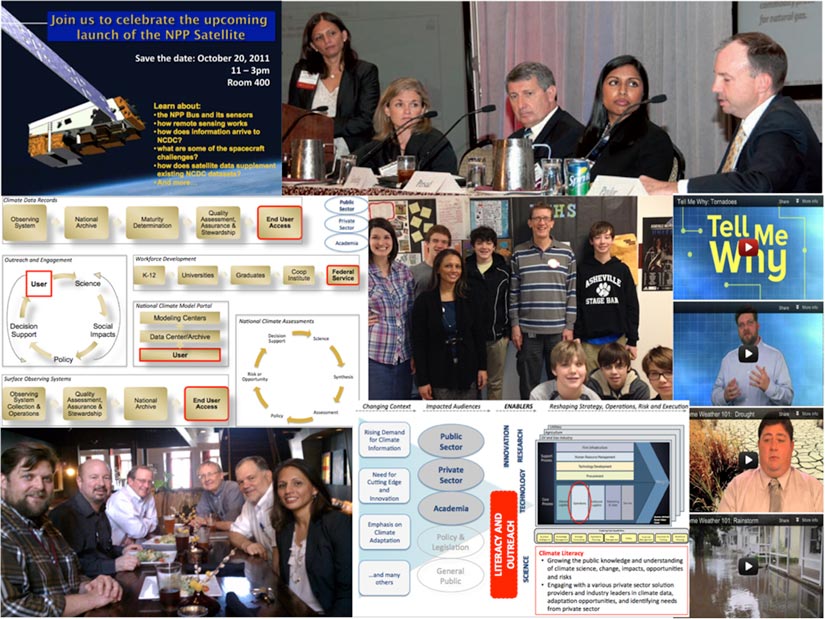Tag: Jenny Dissen
Dec 18, 2018
Engagement
NCICS and the Cooperative Institute for Satellite Earth System Studies support NOAA’s commitment to the development of a society that is environmentally responsible, climate-resilient and…
Mar 7, 2017
US-India Climate Downscaling Workshop
This week, CICS-NC is partnering with the Indian Institute of Tropical Meteorology (IITM) and the Centre for Climate Change Research, both under the Ministry of…
Jan 13, 2017
NCICS at AMS 2017 Annual Meeting
NCICS at AMS 2017 Following closely on the heels of a busy American Geophysical Union 2016 Fall Meeting, the 2017 annual meeting of the American…
Dec 9, 2016
CICS-NC at AGU Fall 2016
CICS-NC scientists contributed to more than a dozen presentations and posters for the Fall 2016 meeting of the American Geophysical Society (AGU) December 12-16, 2016, in San…
Dec 9, 2016
CICS-NC at AGU Fall 2016
CICS-NC scientists contributed to more than dozen presentations and posters for the Fall 2016 meeting of the American Geophysical Society (AGU) December 12-16, 2016, in…
Sep 6, 2016
Portfolio: Supporting NCEI User Engagement
Supporting NCEI User Engagement NCEI engagement activities for FY 2016 by sectors. As part of our mission to help NOAA’s National Centers for Environmental Information…
Jenny Dissen
Private sector Engagement, Adaptation, Resilience, Education, Literacy and Communication, Climate services
Jenny Dissen leads engagement efforts, with more than 15 years of building actionable collaborations across NOAA, industry sectors, and academia to accelerate the application of…
Sep 5, 2013
Executive Forum on Business and Climate
To help U. S. businesses better adapt to the numerous challenges and opportunities resulting from a changing weather and climate, the Cooperative Institute for Climate…
Feb 11, 2013
Frost and Freeze Data Users Workshop
Freezing temperatures often adversely affect commercial and industrial operations, especially those with principal activities in an outside environment. One of the most significant hazards of…




